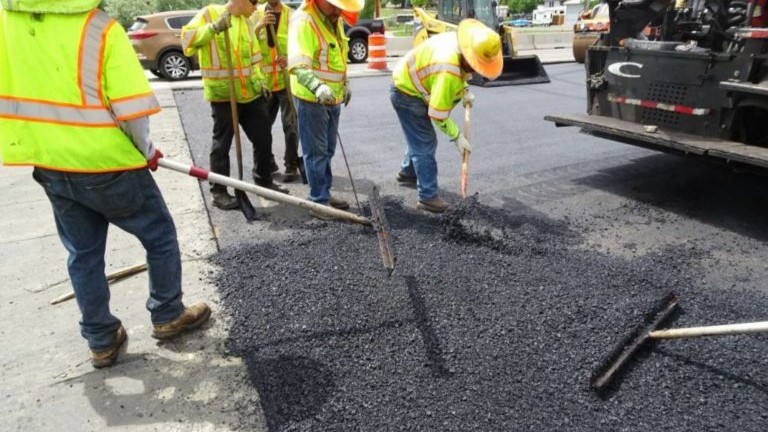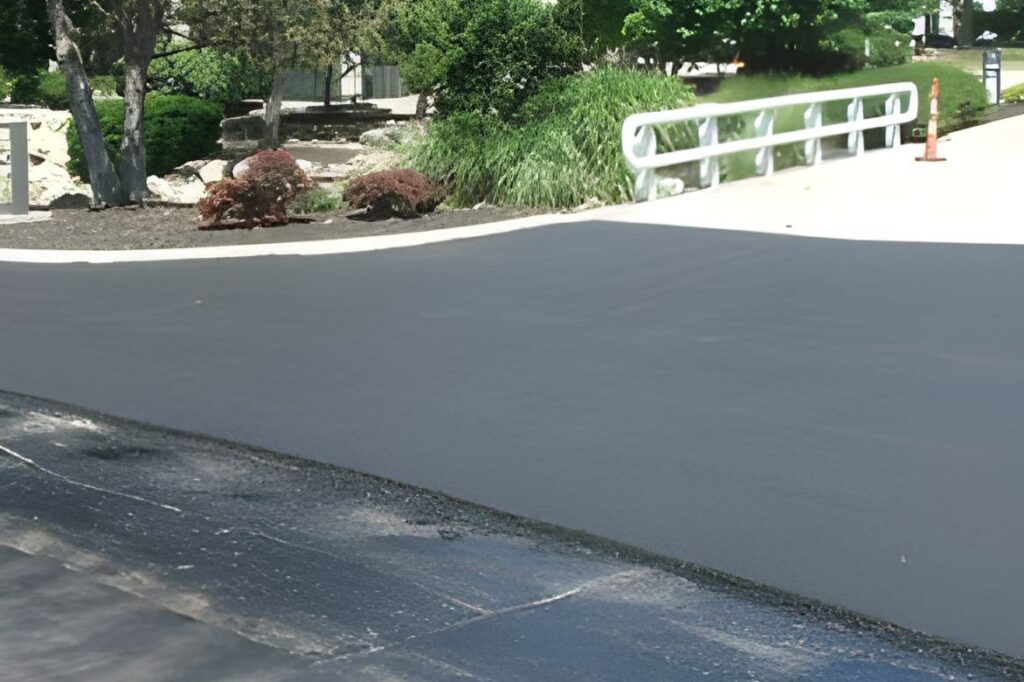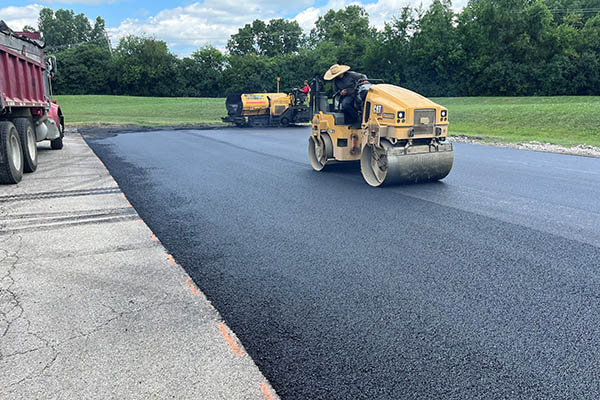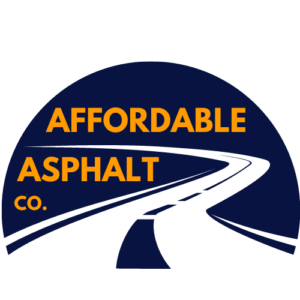Should You Resurface or Replace Your Commercial Asphalt Pavement?
When managing the asphalt pavement of a commercial property, property owners and managers are often faced with the important decision of whether to resurface or completely replace their asphalt. This decision is crucial because it affects the pavement’s overall cost, longevity, and appearance. Making the right choice ensures that your investment is well-maintained, cost-effective, and provides the best long-term value.
At Affordable Asphalt Company, we are here to guide you through this process and help you make an informed decision that suits both your budget and your property’s needs.
Asphalt Resurfacing
Asphalt resurfacing, often called an overlay, involves applying a fresh layer of asphalt over the existing pavement. This method is typically used when the pavement has minor wear and tear, but the underlying structure remains sound. Resurfacing restores the pavement’s functionality and enhances its appearance, without requiring a complete overhaul of the underlying layers.
How Resurfacing Works
-
- Surface Preparation: To begin, the existing asphalt is thoroughly cleaned to remove dirt, debris, and any vegetation. Any potholes or larger cracks are patched to create a smooth base for the new layer.
-
- Tack Coat Application: A bonding agent, called a tack coat, is applied to the old asphalt to help the new layer adhere properly.
-
- New Asphalt Layer: A fresh layer of asphalt, typically between 1.5 to 3 inches thick, is laid over the prepared surface. This layer is designed to handle the expected traffic loads and improve the pavement’s overall durability.
-
- Compaction: After the asphalt is laid, it is compacted using heavy rollers to ensure a smooth, tight finish that can withstand traffic and weather conditions.
Advantages of Resurfacing
-
- Cost-Effective: Resurfacing is significantly less expensive than full replacement, making it a budget-friendly option for many commercial properties.
-
- Quick Turnaround: The process takes less time than a full replacement, meaning less disruption to your business or property.
-
- Aesthetic Improvement: Resurfacing can dramatically improve the appearance of your pavement, making it look almost like new.
-
- Increased Lifespan: Resurfacing adds years to the life of your pavement by creating a new protective layer on top of the existing one.
When Resurfacing Works Best
Resurfacing is ideal for asphalt that has visible surface damage, such as fading, small cracks, and minor surface irregularities, but where the underlying foundation remains solid and intact. This solution is often used when the damage is primarily cosmetic, and the pavement’s structural integrity is still sound.
Asphalt Replacement
When resurfacing isn’t enough, or when the asphalt has suffered severe structural damage, asphalt replacement is the best option. This involves the removal of the old pavement and base material, followed by the installation of a new base and asphalt surface. Asphalt replacement addresses deep-rooted issues that resurfacing cannot fix, such as compromised subgrades, poor drainage, or extensive cracks.
How Asphalt Replacement Works
-
- Removal of Existing Pavement: The old asphalt and base materials are completely removed using specialized machinery, such as milling machines or excavators.
-
- Subgrade Evaluation & Repairs: After the old material is cleared, the underlying subgrade (the soil foundation) is inspected. Any weaknesses are corrected, such as regrading or compacting the soil to ensure it’s stable for the new pavement.
-
- New Base Layer: A fresh base layer of crushed stone or gravel is added and compacted to provide a solid foundation for the new asphalt.
-
- New Asphalt Installation: The new asphalt is laid in multiple layers: a binder layer followed by the top wear layer. Each layer is compacted to ensure durability and smoothness.
-
- Finishing Touches: After the asphalt has been laid and compacted, final steps include surface treatment and the addition of any necessary road markings.
Benefits of Asphalt Replacement
-
- Longer Lifespan: Replacement gives you an entirely new pavement structure that can last up to 20 years or more, depending on traffic and environmental conditions.
-
- Improved Durability: With a new foundation and fresh surface, replaced pavement is more resilient to heavy traffic, extreme weather, and wear.
-
- Enhanced Safety: New asphalt provides better traction, reducing the risk of accidents or damage from worn-out surfaces.
-
- Corrects Underlying Issues: Replacement resolves deeper problems, such as poor drainage or subgrade instability, which resurfacing cannot fix.
When to Replace Asphalt
If your pavement shows signs of extensive damage, such as large potholes, deep cracks, or recurring repairs that no longer hold, replacement may be the best solution. It’s also necessary when the base material is deteriorating, or drainage issues are present.
Comparing Costs and Benefits: Resurfacing vs. Replacement
Initial Costs
-
- Resurfacing: Less expensive upfront, as it requires fewer materials and less labor. It is an affordable option for minor repairs and aesthetic improvements.
-
- Replacement: More costly due to the extensive work involved, including the removal of old material, subgrade repairs, and the installation of a new base layer.
Long-Term Considerations
-
- Resurfacing: While resurfacing offers a cost-effective short-term solution, it may need to be repeated every 10-15 years, especially if underlying issues are not addressed. This can add to long-term maintenance costs.
-
- Replacement: Although replacement has a higher initial cost, it provides a longer lifespan, reduces future repair costs, and solves underlying structural problems.
Decision Factors
-
- Traffic Load: If your pavement experiences heavy traffic or significant wear, replacement may provide better long-term value.
-
- Pavement Condition: For pavements with serious structural issues or recurring damage, replacement is often the only viable solution.
-
- Budget: If your budget is constrained, resurfacing provides an affordable option, but keep in mind it may need to be done more frequently.
How Affordable Asphalt Company Can Assist You
At Affordable Asphalt Company, we understand the importance of choosing the right asphalt solution for your commercial property. Whether you opt for resurfacing or replacement, we offer expert guidance, high-quality materials, and advanced equipment to ensure your pavement is durable and functional for years to come.
Our team will assess your pavement’s condition, provide a clear, no-obligation consultation, and help you determine the best approach based on your budget and long-term needs.
Contact Us Today!
If you’re ready to explore your options or need a free estimate, reach out to Affordable Asphalt Company today. Let us help you keep your property’s pavement in top shape, ensuring safety, durability, and curb appeal for years to come!
Author: Affordable Asphalt Company






